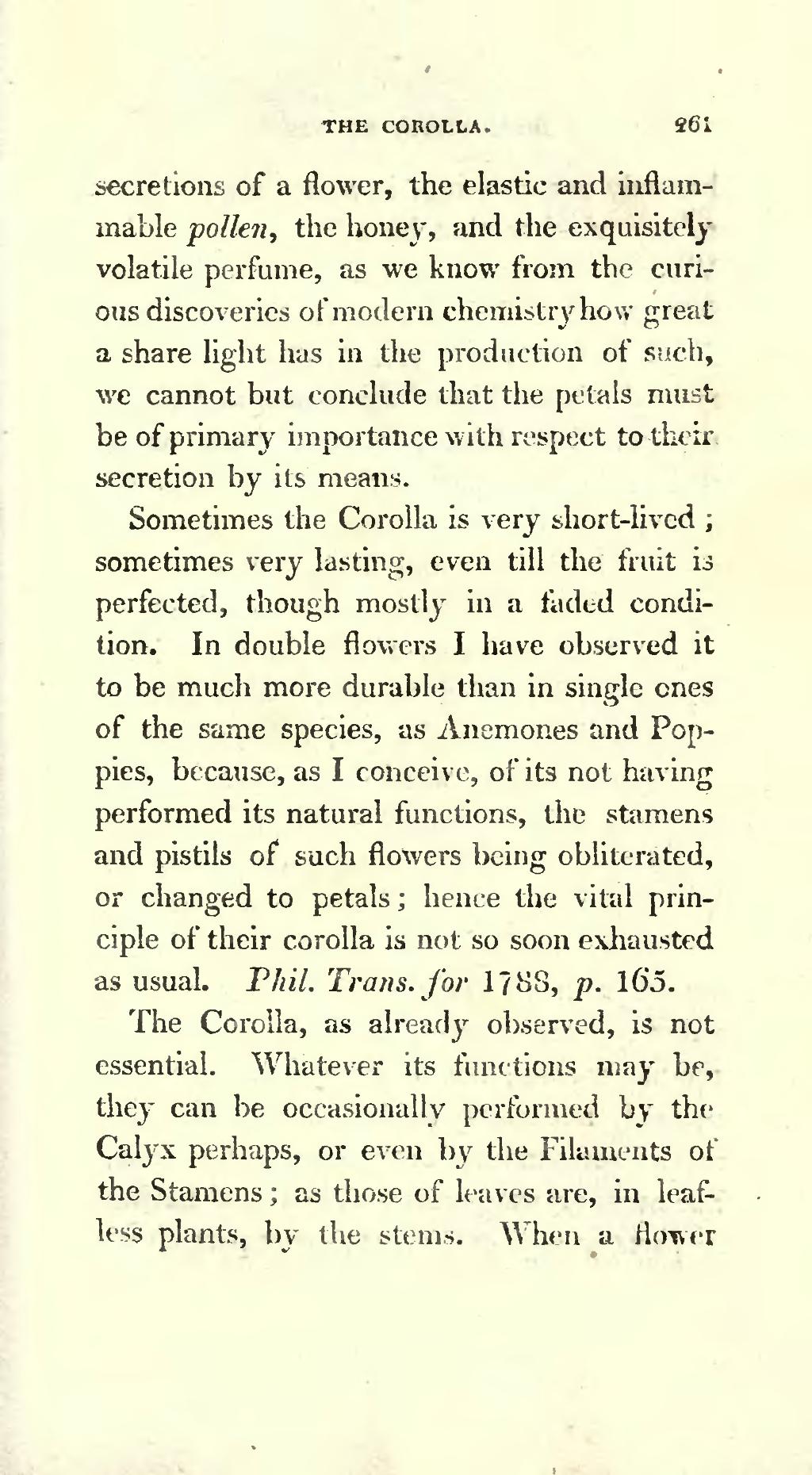secretions of a flower, the elastic and inflammable pollen, the honey, and the exquisitely volatile perfume, as we know from the curious discoveries of modern chemistry how great a share light has in the production of such, we cannot but conclude that the petals must be of primary importance with respect to their secretion by its means.
Sometimes the Corolla is very short-lived; sometimes very lasting, even till the fruit is perfected, though mostly in a faded condition. In double flowers I have observed it to be much more durable than in single ones of the same species, as Anemones and Poppies, because, as I conceive, of its not having performed its natural functions, the stamens and pistils of such flowers being obliterated, or changed to petals; hence the vital principle of their corolla is not so soon exhausted as usual. Phil. Trans. for 1788, p. 165.
The Corolla, as already observed, is not essential. Whatever its functions may be, they can be occasionally performed by the Calyx perhaps, or even by the Filaments of the Stamens; as those of leaves are, in leafless plants, by the stems. When a flower
